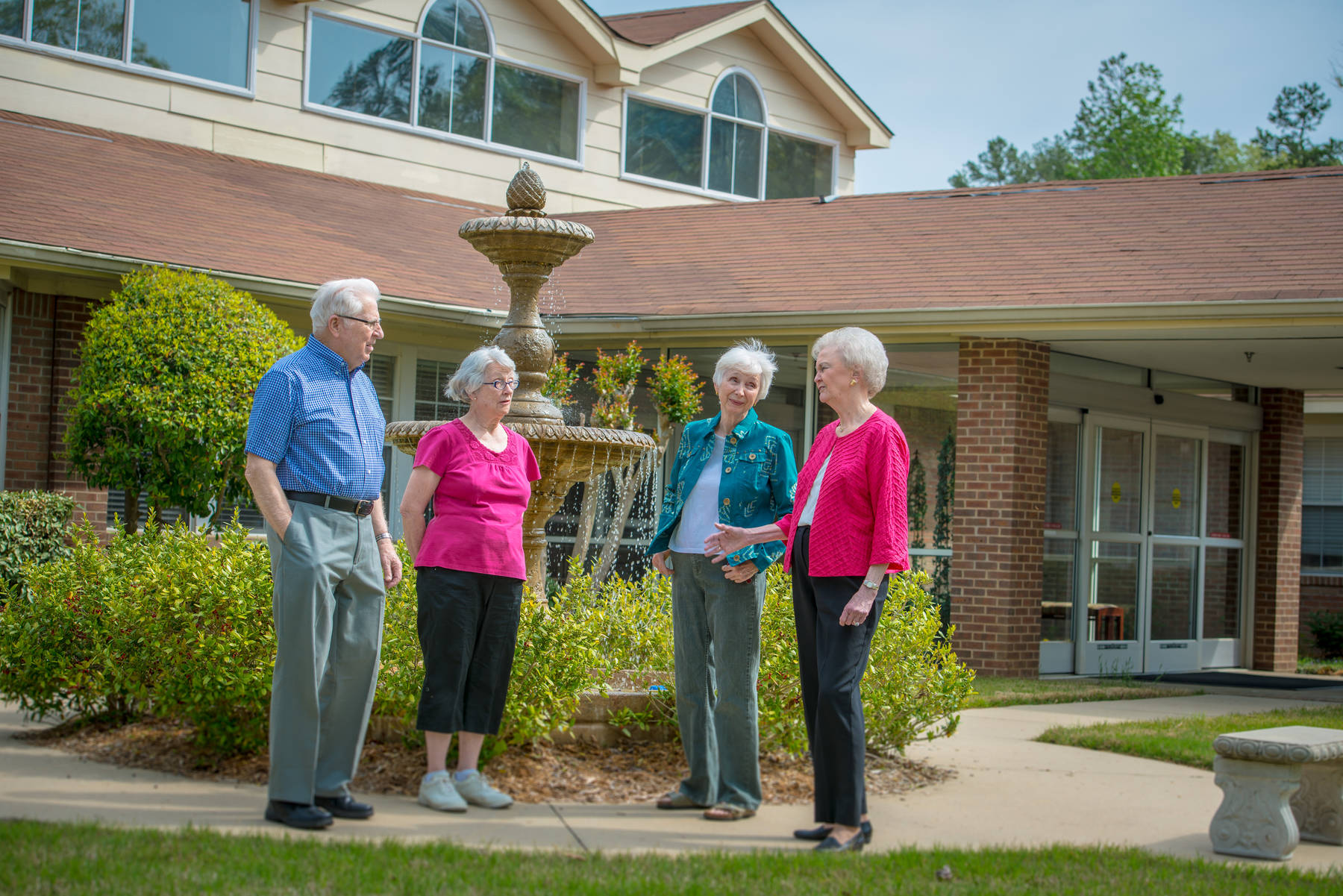By Randy Brantley, Chaplain, Parkway Village
Navigating transitions in life can be challenging at any age, but particularly so in the senior adult years. Some adults respond to transitions by isolating themselves, becoming apathetic, self-medicating to the point of developing an addiction, and at times, becoming suicidal. Finding ways to support a loved one through the first few months of a transition can help them adjust to this new stage of life with a more positive outlook. Your role as a supportive and helpful family member or friend is very important. Family and friends who can verbally acknowledge the emotional reactions to transition can help the senior adult process their emotional reactions in more healthful ways.
Some of the transitions older adults experience include:
- From work to retirement
- From wellness to chronic illness/physical and mental impairments resulting in disability
- Death of a spouse or significant others
- A move to senior housing (due to health, death of spouse, etc.)
- Their own dying and death
Over several months we’ll address these different transitions and provide tips for helping senior adults navigate the changes. This month we’ll look at the transition of moving to senior housing.
Senior adults can experience a roller coaster of emotions when it comes time to move from their lifelong home into a senior living residence. Moving is tough at any age. It is physically and emotionally exhausting. But for older adults moving can trigger feelings of fear, sadness, confusion, anxiety, and loss. As a result, these feelings can leave them feeling helpless and defeated. But there are ways that family and friends can provide support during the transition to a senior living community.
Include Memory Friendly Décor
View the new residence—whether it is an apartment or a single room—as your loved one’s new home. Assist your loved one in creating a home filled with reminders of a life well lived. Consider including:
- A favorite chair or love seat
- Memory box with life event memorabilia
- A favorite collection of items, as space allows
- Wedding album
- Family photo album
- Photos of a spouse, parents, children, grandchildren
- Television and telephone
- Large print Bible and devotional book
- A cheerful comforter for their bed
- A welcoming wreath for their door
- Sofa pillows, a comfy throw, and other items that create a feeling of home
Encourage Patience
It takes time to adjust to a new environment and new neighbors. As with any major life change, there will be good days and not so good days. Therefore, encourage your loved one to be patient in the transition.
Encourage Getting Involved
Take time to investigate the senior living community’s activities and events. Encourage your loved one to participate in the life enrichment and wellness activities the community offers.
Just “Hang Out”
New friendships bloom every day in senior living communities. Many of them begin over a cup of coffee and a friendly conversation in one of the community’s common areas. Encourage your loved one to visit these common areas and strike up conversations with other residents. In addition, encourage your loved one to reach out to new neighbors.
Meet the Staff
Building strong relationships with caregivers and other team members is important for the new resident and their family members. Take time to introduce your loved one to each staff member (especially the chaplain).
Stay Connected
Keep your loved one from feeling abandoned. Help them to stay connected to old friends. Facilitate old friends coming to see your loved one.
Throw a Party
Once your loved one is moved in, invite family and friends to celebrate the new chapter in life by throwing a housewarming at the new residence.
In conclusion, your involvement in the transition to the new senior living community can help your loved one adjust more quickly and feel much happier. Be involved. Stay Involved.
Randy Brantley is chaplain at Parkway Village. In addition to planning and leading faith-related activities, he is also available for conversation and just “hanging out.” When you come for a tour, ask to meet Randy!


